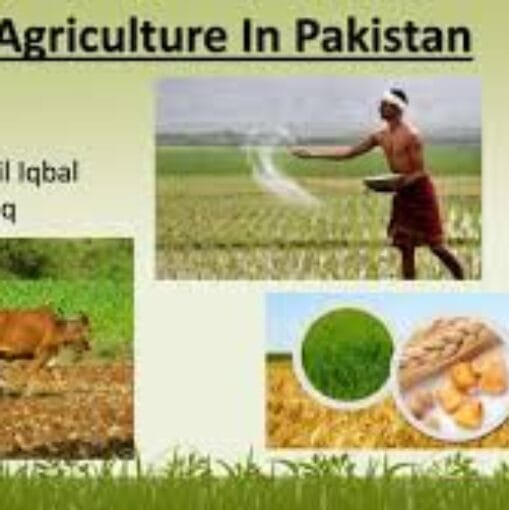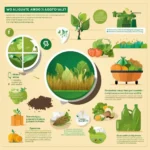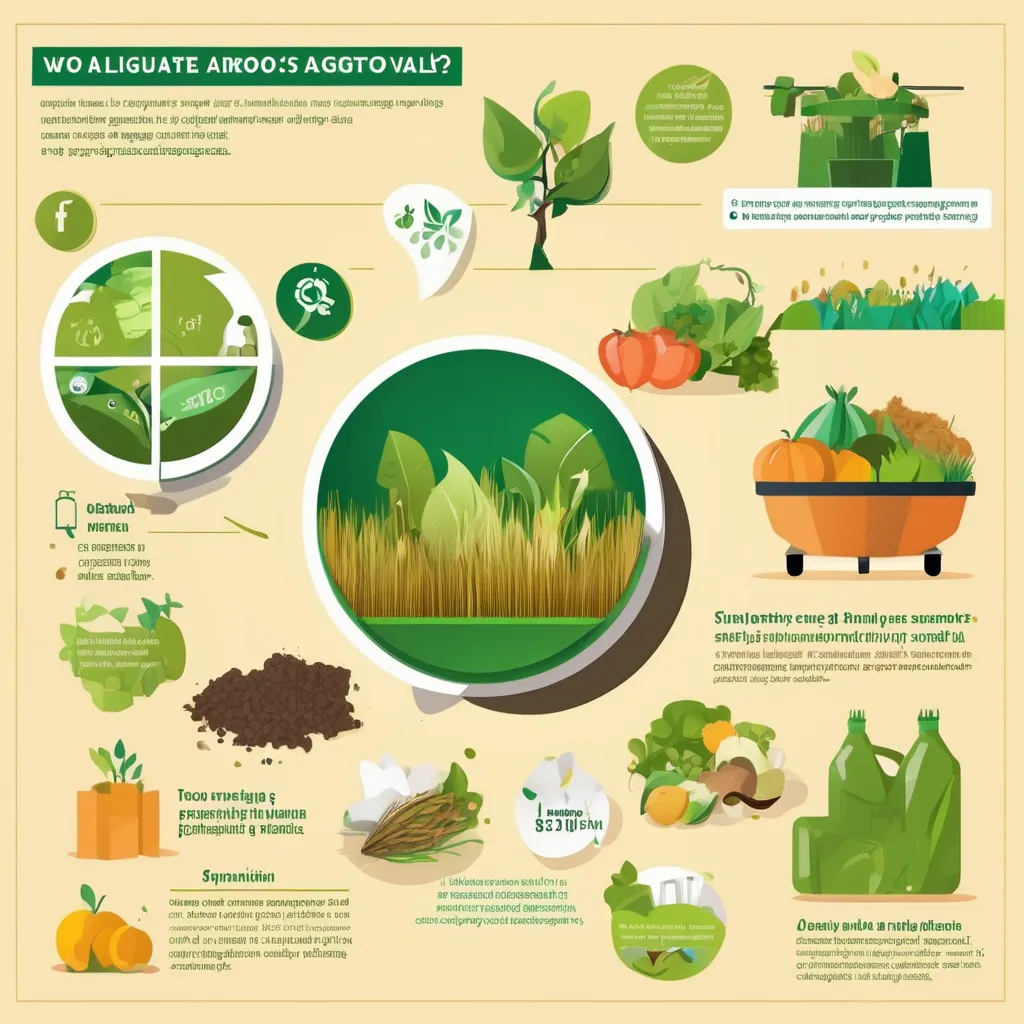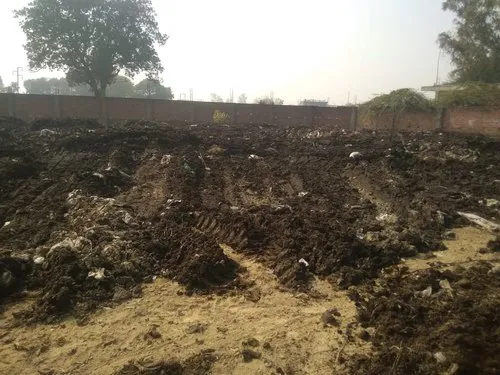Agriculture plays a vital role in Pakistan’s economy, providing employment to a significant portion of the population and contributing to the country’s GDP. However, Pakistan’s agricultural sector is facing multiple crises that pose serious challenges to its sustainability and productivity. Understanding the causes and impact of these agricultural crises is crucial for devising effective solutions and ensuring food security for the nation.

One of the major challenges affecting agriculture in Pakistan is water scarcity. The limited availability of water resources has a direct impact on agricultural productivity, making it difficult for farmers to cultivate crops and sustain their livelihoods. Additionally, climate change exacerbates this issue, leading to irregular weather patterns, including floods and droughts, which further disrupt agricultural activities.
The crises in Pakistan’s agricultural sector have far-reaching effects on the country’s food security. Insufficient food production hampers the availability and affordability of essential agricultural products for the population, leading to food insecurity and malnutrition. This further exacerbates poverty and hinders overall economic development.
To address the agricultural crises in Pakistan, sustainable farming practices must be adopted. These practices focus on conserving resources, optimizing crop yields, and minimizing environmental impact. Moreover, modernizing the agricultural sector through the introduction of advanced technologies and infrastructure can improve productivity and mitigate the challenges faced by farmers.
The government also plays a crucial role in addressing the issues in Pakistan’s agricultural sector. Implementing effective agricultural policies, providing necessary support to farmers, and encouraging research and development are essential components of creating a sustainable and resilient agricultural system in the country.
Key Takeaways:
- Pakistan’s agricultural sector is facing severe crises, including water scarcity and the impact of climate change.
- These crises have a significant impact on food security and overall economic development in the country.
- Sustainable farming practices and the modernization of the agricultural sector are essential for addressing these challenges.
- Incorporating advanced technologies and implementing effective agricultural policies are key to achieving long-term solutions.
- Collaborative efforts from all stakeholders are necessary to ensure a resilient and productive agricultural sector in Pakistan.
Water Scarcity and Agriculture in Pakistan
The agricultural sector in Pakistan faces significant challenges due to water scarcity. Limited water resources have a profound impact on agricultural productivity and food security in the country. Farmers are forced to rely on unreliable water sources, leading to decreased crop yields and increased vulnerability to climate change.
The causes of water scarcity in the agricultural sector are multifaceted. Rapid population growth, inefficient irrigation systems, and climate change-induced droughts are exacerbating the problem. Additionally, mismanagement of water resources and inadequate infrastructure further contribute to the water scarcity crisis in Pakistan.
To ensure sustainable farming practices and overcome the challenges posed by water scarcity, it is crucial to implement effective solutions. This includes improving water management techniques, investing in modern irrigation systems, and promoting water-efficient farming methods. By adopting these measures, farmers can optimize water usage, minimize wastage, and enhance agricultural productivity.
Table: Impact of Water Scarcity on Agricultural Sector in Pakistan
| Challenges | Effects |
|---|---|
| Decreased crop yields | Reduction in food production and income |
| Inadequate irrigation | Increased vulnerability to climate change |
| Water-dependent industries | Job losses and economic downturn |
| Water pollution | Health risks and environmental degradation |
In conclusion, addressing water scarcity in the agricultural sector is of utmost importance for sustainable farming practices and food security in Pakistan. The government, along with farmers and relevant stakeholders, must work together to implement effective strategies and policies. By investing in water management and adopting efficient irrigation techniques, Pakistan can overcome the challenges and build a resilient agricultural sector.
Climate Change and Agriculture in Pakistan
Impact of Changing Weather Patterns
Climate change has emerged as a significant threat to the agricultural sector in Pakistan. The changing weather patterns, characterized by erratic rainfall, floods, and prolonged droughts, pose numerous challenges for farmers and agricultural productivity in the country.
The effects of climate change on agriculture are multifaceted. Erratic rainfall patterns disrupt planting and harvesting schedules, leading to yield losses and decreased farm incomes. In contrast, intense rainfall events and floods can cause soil erosion, crop damage, and infrastructure destruction.
Droughts, on the other hand, result in water scarcity, reduced crop productivity, and livestock losses. These extreme weather events not only impair the livelihoods of small-scale farmers but also threaten food security and exacerbate poverty in rural areas.
Adaptation Strategies and Sustainable Practices
Addressing the challenges posed by climate change requires the adoption of effective adaptation strategies and the promotion of sustainable agricultural practices.
Firstly, farmers need access to climate-resilient crops and improved irrigation technologies to mitigate the effects of erratic rainfall and water scarcity. Drought-tolerant crop varieties and efficient irrigation systems can help minimize water wastage and maximize crop productivity even in adverse climatic conditions.
Furthermore, incorporating climate-smart agriculture practices such as conservation agriculture, agroforestry, and organic farming can enhance the resilience of agricultural systems to climate change. These sustainable practices not only conserve soil moisture and improve soil fertility but also reduce greenhouse gas emissions, contributing to climate change mitigation efforts.
Government Support and International Collaboration
Addressing the challenges of climate change in the agricultural sector requires comprehensive efforts from the government, policymakers, farmers, and international stakeholders.
The government of Pakistan needs to develop and implement effective policies and strategies that prioritize climate resilience, promote sustainable practices, and provide support to farmers in adopting climate-smart agriculture techniques. This includes investing in research and development, providing access to credit and insurance services, and facilitating the dissemination of climate information and advisory services.
International collaboration and financial support are also crucial in building climate resilience in Pakistan’s agriculture sector. Partnerships with international organizations, like the Food and Agriculture Organization (FAO) and the Global Environment Facility (GEF), can facilitate knowledge exchange, capacity building, and financial assistance for implementing climate-smart agricultural projects.

Solutions for Agricultural Crises in Pakistan
In order to address the ongoing agricultural crises in Pakistan, it is crucial to implement sustainable farming practices and modernize the agricultural sector. By adopting these solutions, the country can overcome the challenges it faces and pave the way for a more resilient and prosperous agricultural industry.
Sustainable farming practices play a vital role in ensuring the long-term viability of agriculture in Pakistan. These practices focus on preserving natural resources, reducing the use of chemical inputs, and promoting biodiversity. By promoting sustainable practices such as organic farming, agroforestry, and efficient water management, farmers can improve their productivity while minimizing the negative impact on the environment.
Moreover, modernizing the agricultural sector is essential to overcome the issues plaguing Pakistan’s agriculture. This involves investing in technology, infrastructure development, and research and development. By leveraging advanced tools and techniques, farmers can enhance their productivity, optimize resource utilization, and improve overall efficiency in the production and distribution processes.
Effective agricultural policies and government interventions are also crucial in addressing the challenges faced by farmers. The government should formulate policies that support farmers financially, provide access to credit, and incentivize the adoption of sustainable practices. Additionally, it is important to invest in rural infrastructure, transportation networks, and market linkages to ensure farmers have access to markets and fair prices for their produce.
“The future of Pakistan’s agriculture lies in sustainable farming practices and modernization. By adopting these solutions and implementing effective agricultural policies, Pakistan can transform its agricultural sector into a thriving and resilient industry.” – Agriculture Expert
Collaborative efforts from all stakeholders, including farmers, government, NGOs, and research institutions, are essential to achieve long-term agricultural development in Pakistan. It is through these collective endeavors that the country can overcome its agricultural challenges, improve food security, and create opportunities for economic growth and prosperity.
By investing in sustainable farming practices, modernizing the agricultural sector, and implementing effective agricultural policies, Pakistan can pave the way for a brighter future in agriculture, improving livelihoods for farmers and ensuring food security for its population.

| Challenges in Pakistan’s Agricultural Sector | Solutions |
|---|---|
| Limited access to credit | Government support in providing financial assistance and access to credit for farmers |
| Water scarcity | Implement efficient water management techniques and promote the use of drip irrigation systems |
| Degrading soil fertility | Promote organic farming practices and encourage the use of natural fertilizers |
| Poor infrastructure | Invest in rural infrastructure development, including roads, irrigation channels, and storage facilities |
| Lack of modern technology | Invest in research and development and provide farmers with access to modern agricultural technology |
| Unpredictable weather patterns | Promote climate-smart farming techniques and provide farmers with weather-based advisory services |
Conclusion
In conclusion, the crises of agriculture in Pakistan have profound impacts on the country’s economy, food security, and overall development. The challenges faced by the agricultural sector in Pakistan, including water scarcity, climate change, and outdated farming practices, require urgent attention and sustainable solutions.
To address these challenges, it is crucial to prioritize sustainable agriculture in Pakistan. By implementing modern farming techniques, promoting efficient use of resources, and adopting climate-resilient practices, Pakistan can enhance the productivity of its agriculture sector while reducing its environmental footprint.
Furthermore, concerted efforts are needed from all stakeholders, including the government, farmers, researchers, and policymakers, to overcome the agriculture problems in Pakistan. Collaborative initiatives and effective agricultural policies can play a pivotal role in improving the livelihoods of farmers, ensuring food security, and mitigating the crises faced by the agriculture sector in Pakistan.
In conclusion, the road to overcome the agriculture sector crisis in Pakistan requires a comprehensive approach that integrates sustainable agriculture practices, technological advancements, and supportive policies. By addressing the challenges and implementing innovative solutions, Pakistan can achieve a resilient and prosperous agriculture sector that contributes to the country’s overall development.
FAQ
What are the causes of agricultural crises in Pakistan?
There are several causes of agricultural crises in Pakistan, including water scarcity, climate change, outdated farming practices, limited access to credit and technology, and inadequate agricultural policies.
How do agricultural crises impact Pakistan?
Agricultural crises have significant impacts on Pakistan’s economy and food security. They lead to decreased agricultural productivity, increased food prices, rural poverty, and unemployment. They also threaten the country’s overall development and stability.
What challenges does the agriculture sector in Pakistan face?
The agriculture sector in Pakistan faces various challenges, such as water scarcity, climate change, outdated farming techniques, lack of access to credit and technology, inadequate infrastructure, and inconsistent government policies.
What is the role of water scarcity in Pakistan’s agriculture sector?
Water scarcity is a major challenge in Pakistan’s agriculture sector. It leads to reduced crop yields, limited irrigation facilities, higher production costs, and increased agricultural vulnerability to droughts. Addressing water scarcity is crucial for sustainable farming practices and ensuring food security.
How does climate change impact agriculture in Pakistan?
Climate change has adverse effects on agriculture in Pakistan. It results in erratic weather patterns, including unpredictable rainfall, floods, and droughts. These phenomena disrupt crop cycles, decrease agricultural productivity, and increase the vulnerability of farmers to climate-related risks.
What are the potential solutions for agricultural crises in Pakistan?
The solutions for agricultural crises in Pakistan include adopting sustainable farming practices, modernizing the agricultural sector, improving access to credit and technology for farmers, implementing effective agricultural policies, investing in irrigation infrastructure, and promoting climate-resilient agricultural practices.






